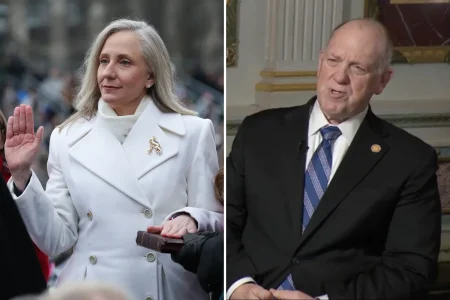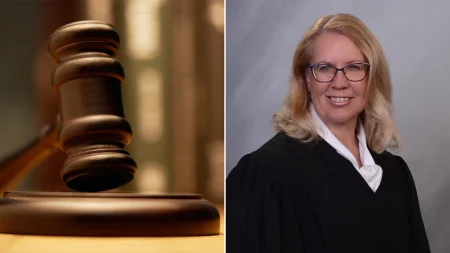Doctor Resigns After Controversy Over Charlie Kirk Assassination Comments
In a troubling incident that highlights the increasing political tensions within professional workplaces, a New Jersey doctor has resigned from Englewood Health following allegations that he celebrated the potential assassination of conservative activist Charlie Kirk. The hospital recently confirmed to Fox News Digital that it had “diligently investigated” the September 10 incident that occurred between the physician and a nurse in a patient care area.
The controversy came to light when nurse Lexi Kuenzle, 33, filed a lawsuit against both Englewood Health and Dr. Matthew Jung. According to Kuenzle, Dr. Jung openly “cheered and celebrated” the idea of Charlie Kirk’s assassination while in the presence of patients and fellow staff members. What made the situation more concerning for Kuenzle was the apparent professional retaliation she faced after reporting the incident. In her lawsuit, she claimed she was suspended following her decision to speak up about Dr. Jung’s comments, raising serious questions about workplace ethics and the protection of whistleblowers in healthcare settings.
Englewood Health has since clarified its position, stating that Kuenzle “was never fired; was never told she would be fired by Englewood Hospital; and will not miss any pay as part of our review of this matter.” The hospital spokesperson confirmed that while they have accepted Dr. Jung’s resignation, Kuenzle is “expected to work her scheduled shifts.” This resolution comes after significant media attention, including Kuenzle’s appearance on “Fox & Friends,” where she shared her experience with host Brian Kilmeade. During the interview, Kuenzle, who describes herself as “a big fan of Charlie Kirk,” recounted that she had no prior knowledge of Dr. Jung before their interaction. She told viewers that the doctor was “standing there, celebrating the death of Charlie Kirk, saying how ‘he deserved it,’ he hated Charlie Kirk and ‘he had it coming to him.'”
The incident raises important questions about professional conduct in healthcare settings, where patients from all political backgrounds rely on unbiased care. Medical professionals are typically held to high ethical standards that include maintaining political neutrality in patient care environments. When healthcare providers openly express partisan views—particularly those celebrating potential violence against public figures—it can undermine patient trust and create a hostile work environment for colleagues with differing political perspectives. Dr. Jung’s alleged comments, if accurately reported, represent a concerning departure from these professional expectations.
What makes this case particularly noteworthy is how it intersects with broader concerns about workplace retaliation and political speech. Kuenzle’s representation by the Dhillon Law Group, a firm known for handling high-profile free speech and workplace discrimination cases, signals the seriousness with which she viewed the alleged retaliation. Though Englewood Health maintains that Kuenzle was never at risk of losing her position, the very fact that she felt compelled to seek legal representation suggests a breakdown in communication and trust between the institution and its employee. This highlights the challenges healthcare organizations face in balancing freedom of expression with maintaining appropriate professional boundaries.
In its statement following Dr. Jung’s resignation, Englewood Health emphasized its commitment “to providing a safe and respectful environment for all.” This incident serves as a reminder that healthcare institutions must work diligently to create workplace cultures where staff feel comfortable reporting unprofessional behavior without fear of retaliation, and where political differences do not interfere with the primary mission of patient care. As polarization continues to affect every aspect of American life, hospitals and other healthcare providers may need to develop clearer guidelines about political speech in professional settings and ensure that reporting mechanisms protect those who raise concerns about potentially inappropriate behavior.











